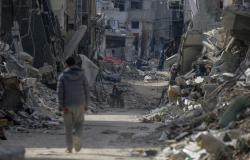Management of trauma, resuscitation of newborns, stroke and prevention of infectious diseases. And then more exercises on how to best deal with anaphylactic shock, on honing surgical skills and much more. These are some of the themes at the center of the training projects financed by the Council
23 APR –
From the management of trauma to the resuscitation of newborns, from strokes to the prevention of infectious diseases. And then more exercises on how to best deal with anaphylactic shock, on honing surgical skills and much more.
The regional council finances eleven simulation training projects, a fundamental aspect of the continuous training of doctors, nurses but also technicians and healthcare workers. In fact, through exercises on mannequins and in virtual environments it is possible to better learn diagnosis and therapy procedures, processes can be repeated over and over again to better analyze them and then make decisions.
Since 2021, in Tuscany there has been a regional network that deals with this, made up of thirteen training centers coordinated by the Pisan university hospital company: a network that was reorganized a year ago to increase the relationship between the individual centres, the universities and the companies, thus strengthening their activities.
For the Department of the Right to Health, simulation training is extremely important, a cutting-edge tool essential for the continuous training of doctors, nurses but also technicians and healthcare workers. The projects presented will allow us to increase the skills of the regional health system staff while also improving responses to people’s health needs.
The eleven funded projects, explains a note, concern for example the management of the so-called major trauma, i.e. those injuries that can lead to serious disability or put the patient’s survival at risk: the objective is to make the care paths homogeneous part of the healthcare personnel in the area and in the hospital.
Another project aims to develop virtual reality software to enhance training in neonatal resuscitation and yet another involves the use of wearable simulators that reproduce real body parts: to make the simulation even more realistic. One project concerns the early recognition of stroke: in this case time is a determining variable for a positive prognosis and the steps in which time can be wasted will be analysed.
We will also train on the “debriefing” technique, i.e. the evaluation and analysis of what has been done. Among the funded interventions there is also practical training to improve the awareness of medical-health workers in the prevention of the spread of infectious diseases: a fluorescent solution will be used which will be used on a mannequin and which will allow to demonstrate how during critical situations the operators they spread bacteria into the surrounding environment.
Another project concerns the strengthening of the skills of nurses who work with children and young people in paediatrics, emergency room and local emergency departments: the training, through high-fidelity simulation, will focus on the recognition of critical vital parameters. Also aimed at pediatric patients, a training course – through in situ training – will address anaphylactic shock.
We will also train on relational skills through simulation scenarios, on the importance of correct information and the ability to make timely decisions in the management of trauma and surgery
April 23, 2024
© All rights reserved
Other articles in Regions and Local Health Authorities





Tags: Simulation training healthcare personnel eleven hoc projects underway










